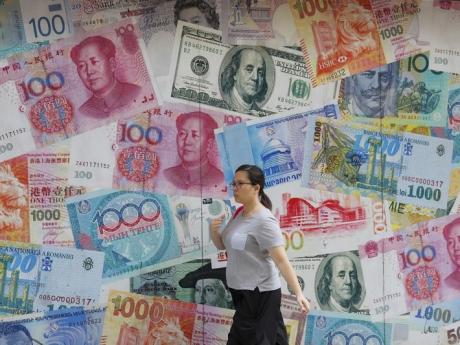WASHINGTON (AP) — The International Monetary Fund is further downgrading its outlook for the world economy, predicting that growth this year will be the weakest since the 2008 financial crisis, primarily because of widening global conflicts.
The IMF’s latest World Economic Outlook released Tuesday foresees a slight rebound in 2020 but warns of threats ranging from heightened political tensions in the Middle East to the threat that the United States and China will fail to prevent their trade war from escalating.
The updated forecast was prepared for the fall meetings this week of the 189-nation IMF and its sister lending organisation, the World Bank.
Those meetings and a gathering Friday of finance ministers and central bankers of the world’s 20 biggest economies are expected to be dominated by efforts to de-escalate trade wars.
The new forecast predicts global growth of 3% this year, down 0.2 percentage point from its previous forecast in July and sharply below the 3.6% growth of 2018.
It would be the weakest year since global growth was a negative 0.1% in 2009 as the global economy struggled with the shockwaves from the 2008 financial crisis.
For the United States this year, the IMF projects a modest 2.4% gain, down from 2.9% in 2018.
Next year, the fund foresees a rebound for the world economy to 3.4% growth but a further slowdown in the United States to 2.1%, far below the 3% growth the Trump administration projects.
IMF economists cautioned that even its projected modest gains might not be realised.
“With a synchronised slowdown and uncertain recovery, there is no room for policy mistakes, and an urgent need for policymakers to cooperatively de-escalate trade and geopolitical tensions,” Gita Gopinath, the IMF’s chief economist, said.
Last week, the United States and China reached a temporary cease-fire in their trade fight when President Donald Trump agreed to suspend a tariff hike on $250 billion of Chinese products that was to take effect this week.
But with no formal agreement reached and many issues yet to resolved, further talks will be needed to achieve any meaningful breakthrough.
The Trump administration’s threat to raise tariffs on an additional $160 billion in Chinese imports on December 15 remains in effect.
The IMF’s forecast predicted that about half the increase in growth expected next year will result from recoveries in countries where economies slowed significantly this year, as in Mexico, India, Russia and Saudi Arabia.
The global economy will also get a boost from recoveries or at least more shallow recessions in various stressed emerging market economies such as Turkey, Argentina and Iran.




Leave A Comment